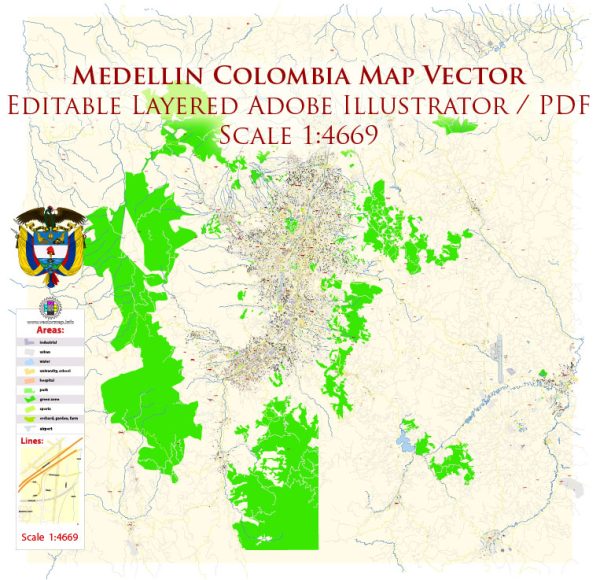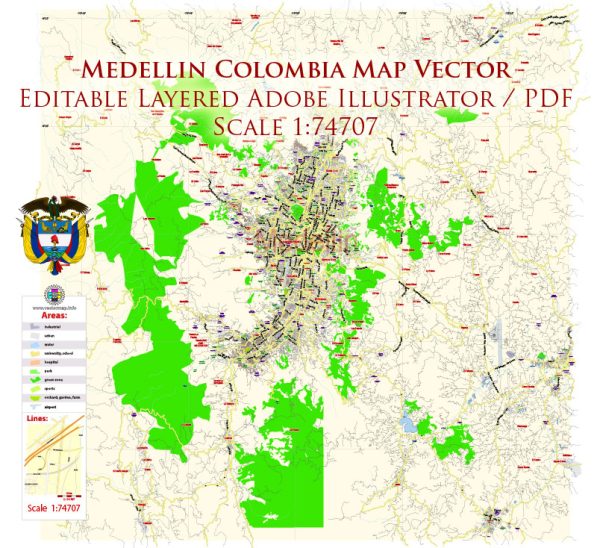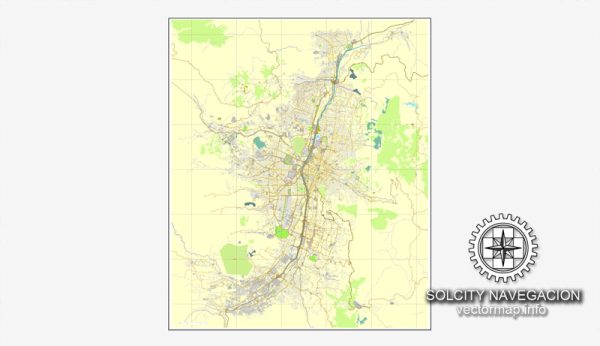Medellín, Colombia, is a city known for its rich history, culture, and transformation over the years. Here’s a socio-economic description of the city:
- Economic Growth: Medellín has experienced significant economic growth in recent years. It’s the second-largest city in Colombia and serves as a major economic hub for the country. The city has a diversified economy, with a focus on industries like manufacturing, textiles, fashion, technology, and services.
- Income Inequality: While the city has made substantial progress in reducing poverty and inequality, income disparities still exist. You can find affluent neighborhoods with high-income residents as well as areas with lower income levels. The city has made efforts to address this issue through various social programs and investments in education and infrastructure.
- Business and Innovation: Medellín is a leader in innovation and entrepreneurship in Colombia. It has several universities and research institutions, contributing to a thriving knowledge-based economy. The city has invested in creating innovation districts and startup incubators, which have attracted both local and international businesses.
- Tourism: Tourism is an essential part of the city’s economy. Medellín has become a popular destination for both domestic and international tourists, thanks to its pleasant climate, cultural attractions, and beautiful landscapes. Tourism provides jobs and stimulates the local economy.
- Transportation and Infrastructure: The city has invested heavily in improving transportation and infrastructure, including an efficient metro system, cable cars, and public spaces. These developments have not only improved the quality of life for residents but also attracted businesses and investment.
- Education: Medellín is known for its strong education system. It has numerous universities, technical colleges, and research centers. The city’s commitment to education has been a key factor in its economic development.
- Violence Reduction: Medellín was once one of the most dangerous cities in the world due to drug-related violence. However, the city has made substantial progress in reducing violence and improving security. This has had a positive impact on economic development and quality of life.
- Cultural Vibrancy: The city is known for its vibrant culture, with numerous festivals, museums, and cultural events. This cultural richness contributes to the city’s appeal and fosters creative industries.
- Informal Economy: Like many other cities in Latin America, Medellín has a significant informal economy, with many people working in street vending and other unregulated sectors.
- Social Programs: The local government has implemented various social programs aimed at improving the living conditions of disadvantaged communities, which have contributed to social development and economic inclusion.
It’s important to note that while Medellín has made significant progress in improving its socio-economic conditions, challenges still exist, particularly in addressing income inequality and providing opportunities for all residents. The city’s transformation is an ongoing process, and various stakeholders continue to work towards making it an even more inclusive and prosperous place to live and work.




 Author: Kirill Shrayber, Ph.D. FRGS
Author: Kirill Shrayber, Ph.D. FRGS